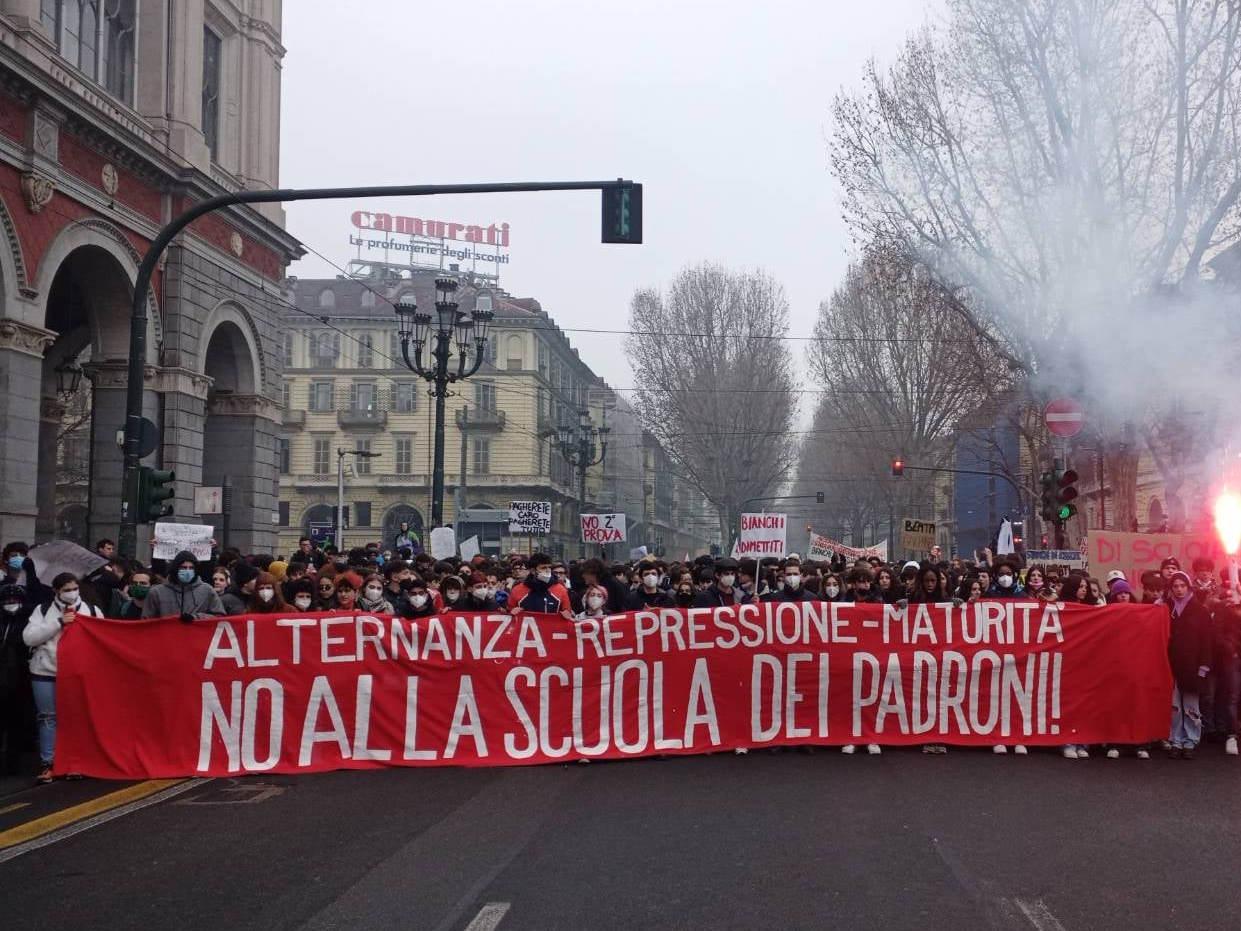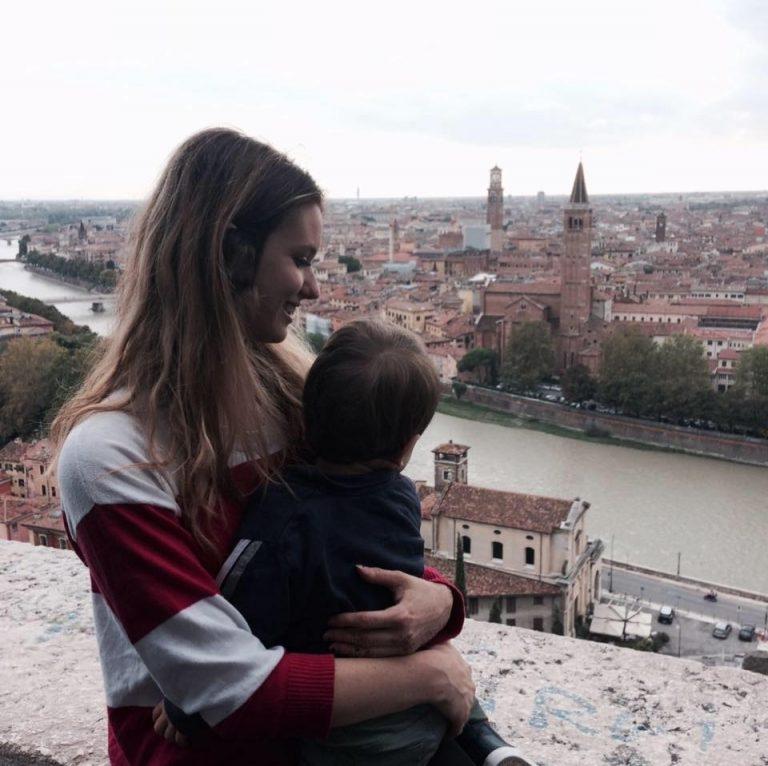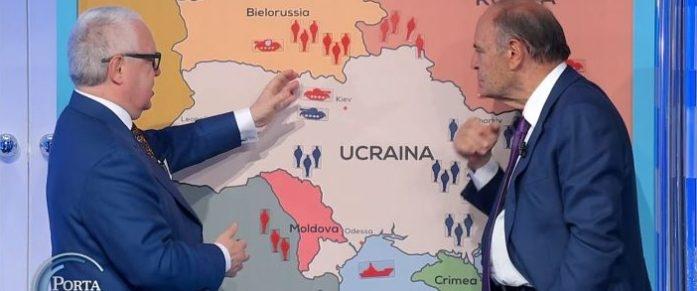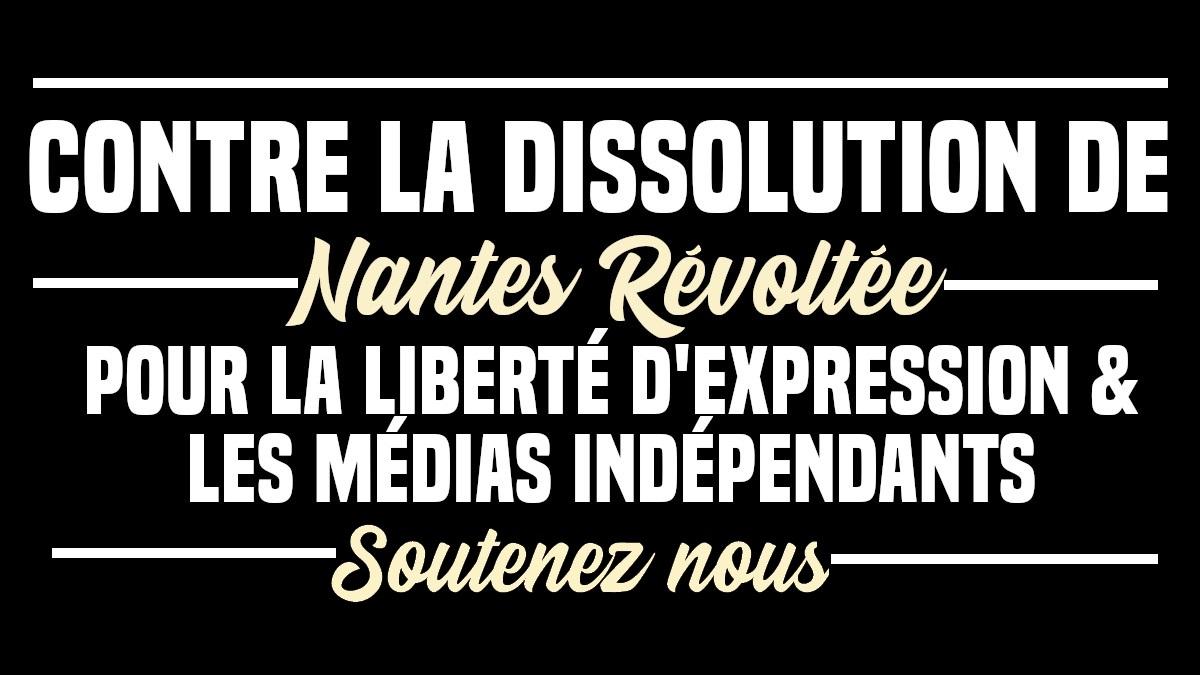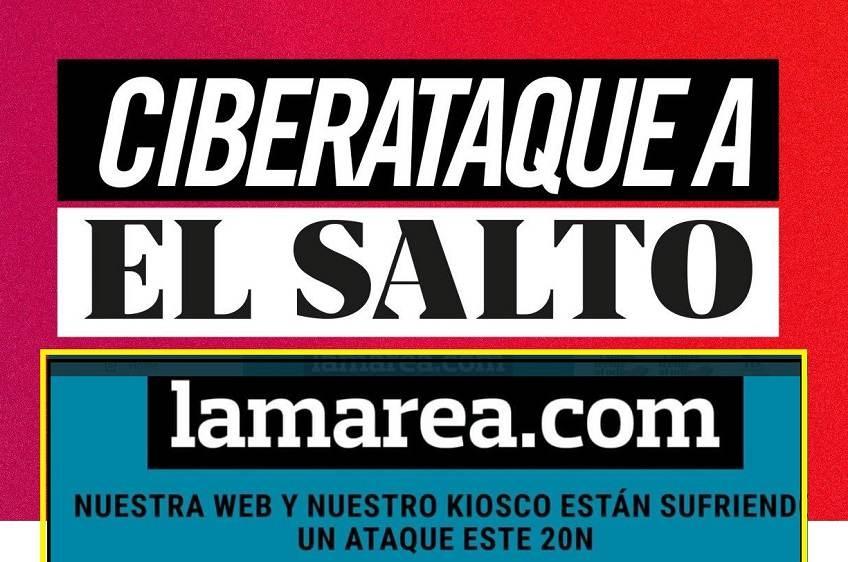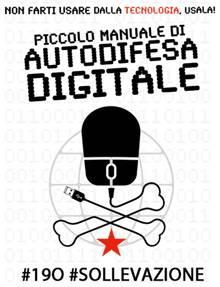
19 october: crypt ‘r die

From the Cyber Resistance crew (wwww.cantiere.org) we get a little manual for managing as best as possible your smartphone in prospect of #19o: apps, habits and good practices of communication to use during a rally.
Demo after demo we could see one more phone, camera or videocamera joining up the myriad of lenses watching over the rally, documenting its actions or recording on tape the police forces abuses.
Sometimes it happened to be part of epic moments. Such as on September 2000 in Prague during the protest against the IMF summit. Suddenly, at the head of the blue block assaulting the police cordons, a mediactivist appeared. Defiant of the water cannons and the tear gas downpour, he inserted the microphone under a bulky gas mask and, like it had been perfectly normal, started to stream what was happening in the square. Never like in that occasion the saying “medium is the message” was right. Pure mythopoeia of independent and partisan information.
On the other hand, it could happen to witness funnier events. If during a direct action, for instance against a bank, a camera unexpectedly popped up to film the action, unpleasant situations could occur. That confused mass of idioms, excited and lively until a moment before, quickly dissolved giving way to stiff silences, folded arms and hostile glances. On the on call mediactivist face used to appear an idiotic smile, with a worried glare in the eyes and the sensation to have really fucked it up. «Crap…my camera is going to end up just like that ATM», the unlucky one was thinking while looking with the corner of the eye a cash dispenser surrounded in flames a few meters away. «Ok guys.. he’s safe!», someone in the group used to say after watching the bracelet attesting his participation to the demonstration’s organisation, «Don’t give up!». Danger escaped, demonstration finished and rush to the mediacenter to pour on an hard disk the day’s pictures. To be ad hoc modified before being published online.
Two of the principles that each good mediactivist should take note of on his vade mecum are summed up in these brief anecdotes. On the one side there is the awareness that bringing a camera is a partisan choice, urged by the will to not back out of the media field and not letting the narration of the events to enemy hands. On the other side (and this is the second principle, tightly connected to the first one) that this choice entails a precise responsibility: that is, to uphold the demonstrations and everyone that decided to participate in them.
Back to the future
Nonetheless in 2013 activists, hackers and militants are moving within a deeply changed social and technological background than 15 years ago, even if only for the increased diffusion of digital – self communication devices such as smartphones. This a phenomenon presenting apparent ambivalences. Indeed the distributed nature of current communicative processes entails a certain quickness in spreading information, counterbalanced by a loss of control on information itself. Lots of youths involved in 2011 UK riots and jailed for a few too many pictures published on social networks know that just too well. As much as it is known by the top brass of the overthrown Ben Ali regime: 20 years of power turned into dust because of the Moahmed Bouazizi martyrdom frames, the spark that set the Tunisian fire in December 2010.
In our age, crossed by a constant and unstoppable flux of information, the image is once more apparently one of the main driving forces of political action, as a beacon of behaviours and emotions. Yet, ts uncontrolled proliferation – especially if not mediated by any kind of critical reflection – brings in itself the seeds of that “radical transparency” that is typical of commercial social networks (along with the attached repressive consequences that it may cause).
Does this imply that the forms of distributed communication are inevitably doomed to turn into distributed self – surveillance? Does it mean that no form of protection is possible anymore? Absolutely not. It is evident from a little manual of digital self – defence made by the comrades of Social Centre Cantiere towards the #19o. It is a little brochure where tools, attitudes and good practices to adopt in order to safely communicate through your smartphone are concentrated in a few pages.
Do not let yourself be used by technology! Use it!
Computer and mobile phones are often technologies that users do not fully control. Most of online communication is readable by the industries providing us the network connection or the web services we daily use. Moreover such enterprises as Google or Facebook, through facial recognition, are capable of associating a real identity to the faces in a picture uploaded on their servers. Then how to protect your privacy and that of who is beside you in a demonstration where smartphones are broadly used?
In order to answer this question we need to make a fundamental premise: none of the solutions recommended by Cantiere’s comrades can grant you 100% safety. Each software is a coded transposition of human intelligence and, as such, is not exempt from errors, bugs or unpredicted bad functioning. Nonetheless the tools’ overview provided in the manual will allow you to improve your devices and communication management at times that could be more or less critical.
First step: set a password to lock your mobile’s screen. If the password is elaborated enough it would be difficult to access your data through a simple search. Even more recommended in this sense is the encryption of the entire memory of your mobile (an option available in all Android releases past 4.0). Even knowing and using the rights guaranteed by the law on the subject is not a bad idea: for example in Italy if it is true that, in a public venue, police can check your smarthpone (or your PC), it is also true that in that country there are no laws compelling citizens to reveal to a public officer the key – word to access it.
In order to call there is RedPhone, a great Android app that, thanks to a end-to-end system of encryption, grants your conversations’ privacy from either side of your transmission. In substance this software allows to make free VOIP calls (then through internet) without anyone being able to eavesdrop them.
Text messages and MMS on the other hand can be committed to TextSecure, whose function is to encrypt text messages that two speakers are exchanging on the GSM network. Another feature of this app is to create on your phone a little digital strongbox where your messages will be safeguarded. Even if your device may end in the wrong hands (in case of loss or seizure) it would be still necessary to know the password in order to open it, otherwise your text messages would be unreadable.
Then we have Surespot, an app that is totally akin to the more famous WhatsApp, but designed with a special consideration for safety: it does require neither a phone number nor an email addresses to register, it allows to use multiple identities and each sent message, once erased from the sender’s phone, disappears even in the addressee’s one.
Obscuracam is another Android app developed by Guardian Project. Its function is to considerably simplify the graphic process of obscuring faces captured on pictures and videos. The app is still in a developmental stage and on some smartphone models (especially the most recent ones) it may not work properly. Moreover it is unlikely to work effectively on low – resolution pictures or in those portraying a very high number of people.
Anyway, the decision of shooting a picture or not, of engaging in a conversation on a VOIP network or of filing certain information on your own device cannot be exclusively based on technological criteria: even common sense is a good thing. Sometimes it can be more comfortable to use an old phone with an anonymous SIM (you can find it easily around) to have a chat. Or, when you are streaming a demonstration on Twitter, it is a best practice to remember that in some moments is better resorting to text instead of images, even in order to protect the privacy of those who are around us. Finally, look at this xkcd cartoon explaining in a few words the difference between crypto – analytic techniques and their practical implementation. Of course you can get a constructive teaching from it.
Last but not least there is another option that is always possible to perform if you want to: disconnect yourselves. Nothing and nobody would force you to go to a rally with mobiles, 3G internet keys or video – cameras. Reflect calmly, ponder carefully pros and cons of the choice you are undertaking and make your move. The finally decision is only up to you.
Beyond #19o
During the many assemblies that carried on its preparation, it has often been repeated that #19o would not have been a per se event, but the first step in a longer and more articulated process of fight and mobilization. In order not to let this intent unheeded, it would be better that initiatives such as Cantiere’s – with the production of this brochure – would multiply and become the object of a widespread debate focusing on promoting a popular technological culture within social movements. Not only because, as the manual we have just presented states, «having a smart and conscious approach in using smartphones and computers should be a daily attitude of everyone and not a few paranoid mediactivists’ problem on a demonstration day». But even and above all because in the 21st century conflicts are won, and lost, on two tightly intertwined levels: the physical terrain of conflict and the communicative digital space.
Streets and net: united we stand.
InfoFreeFlow (@infofreeflow) for Infoaut
Ti è piaciuto questo articolo? Infoaut è un network indipendente che si basa sul lavoro volontario e militante di molte persone. Puoi darci una mano diffondendo i nostri articoli, approfondimenti e reportage ad un pubblico il più vasto possibile e supportarci iscrivendoti al nostro canale telegram, o seguendo le nostre pagine social di facebook, instagram e youtube.














